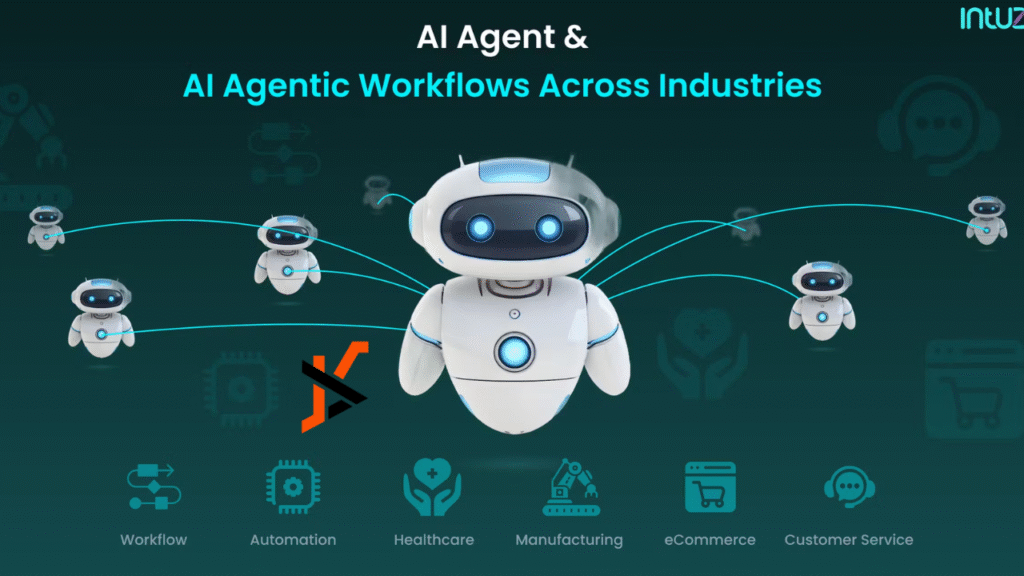AI agents are an essential part of the modern digital environment. They can learn and operate independently without constant human input. These systems adapt to new data and anticipate needs before users express them.
This technology is gaining more popularity in different niches. Keep reading and learn about the main use cases of AI agents!
Customer Service and Support
The earliest and probably one of the most popular use cases for AI agents is customer service.
Businesses use chatbots on sites and apps to:
- Answer frequently asked questions,
- Process orders,
- Resolve common issues.
These systems don’t need breaks. They can handle thousands of requests simultaneously.
Modern AI agents can understand and respond in different languages. They also function across channels and offer a seamless support experience.
Also, the newest models are more contextually aware. They pass along the full history of the customer’s query when they can’t resolve an issue. It saves time for the client and the human support team.
Marketing Automation
AI agents are changing the approach to customer acquisition and retention.
They can analyze customer data and engagement patterns to rank leads by chance to convert. Sales teams can prioritize efforts where they’ll have the most impact.
Also, they allow you to personalize campaigns. They learn what clients want by studying their:
- Past purchases,
- Browsing behavior,
- Demographics.
These systems automatically segment audiences and activate customized campaigns.
Plus, virtual sales assistants help your clients compare products and remind them of discounts. These agents mimic the experience of an in-store salesperson.
Workflow Optimization
AI agents don’t only benefit customers. They can transform the internal machinery of any business.
This advancement excels at automating repetitive tasks. It can handle:
- Meeting scheduling,
- Invoice processing,
- Data entry,
- Payroll preparation.
Also, this advancement can be your decision support system. It analyzes data from different departments and gives you recommendations. For instance, it can help you with resource allocation or addressing inefficiencies.
Plus, AI is an important component of supply chain optimization. It helps you predict demand and optimize delivery routes.
Healthcare
Healthcare is another industry that benefits a lot from AI.
This technology allows for remote patient monitoring. Wearable devices and sensors feed data to AI agents that monitor vital signs and send anomaly alerts.
Doctors face a huge volume of medical research. These systems scan patient records alongside the latest studies. They can recommend treatment paths or suggest additional tests.
Also, virtual therapy assistants are helping with mental health by providing:
- Conversational support,
- Guided meditations,
- Reminders for medication adherence.
Patients receive faster care, and providers can manage resources more efficiently.
Finance and Banking
Financial services are particularly well-suited for AI agents. They handle tons of repetitive processes and require fast decisions.
AI agents help you with fraud detection and prevention. They constantly scan transactions and look for suspicious patterns. Next, they block activity within milliseconds.
Also, this technology provides automated financial planning. It helps users invest based on their:
- Income,
- Goals,
- Risk tolerance.
It adjusts portfolios as market conditions change.
Banking agents can guide new customers through account setup. They explain loan options and help them dispute charges without waiting on hold.
Education
AI agents are the core of modern education.
This technology is the foundation of adaptive learning platforms. The system tracks how students interact with lessons and identifies weak points. It adjusts the curriculum to strengthen skills.
Virtual teaching assistants are becoming more popular. AI tutors can:
- Offer on-demand support,
- Help students outside of class hours,
- Explain concepts differently.
Also, these systems are great for corporate training. They simulate customer interactions or safety drills. It helps employees practice and refine skills in a safe environment.
Research and Knowledge Management
AI agents act as intelligent collaborators for researchers, analysts, and knowledge workers.
Researchers rely on this technology to automate paper review. It helps them:
- Summarize findings,
- Highlight conflicting data,
- Suggest new directions.
Agents can quickly analyze enormous datasets. They present insights that would take humans much longer to uncover.
Also, many companies use these models to organize massive internal document libraries. They help with extracting metadata and retrieving relevant content instantly.
Personal Productivity
AI agents aren’t just for businesses. They’re becoming a part of our everyday life.
For example, smart home assistants can control:
- Lighting,
- Appliances,
- Security systems,
- Entertainment.
They make our house more efficient and user-friendly.
Personal finance agents can help you track expenses and categorize spending. They simplify the money management process and make it smarter.
Plus, AI assistants integrate with calendars and email. They can suggest optimal meeting times and remind you of deadlines. Some models even reschedule automatically if conflicts arise.
Conclusion
AI agents used to be experimental tools. Now, they are our reliable partners in many industries and daily life. They bring tons of benefits, including:
- Personalization,
- Efficiency,
- Cost savings,
- Faster decisions.
They are more context-aware and capable of reasoning in multiple domains. So, we definitely expect more use cases for AI agents in the future!

